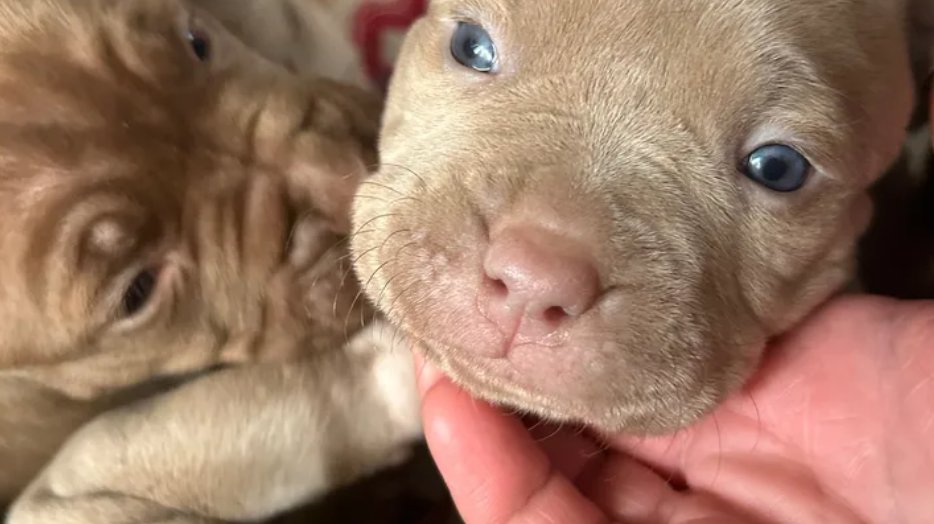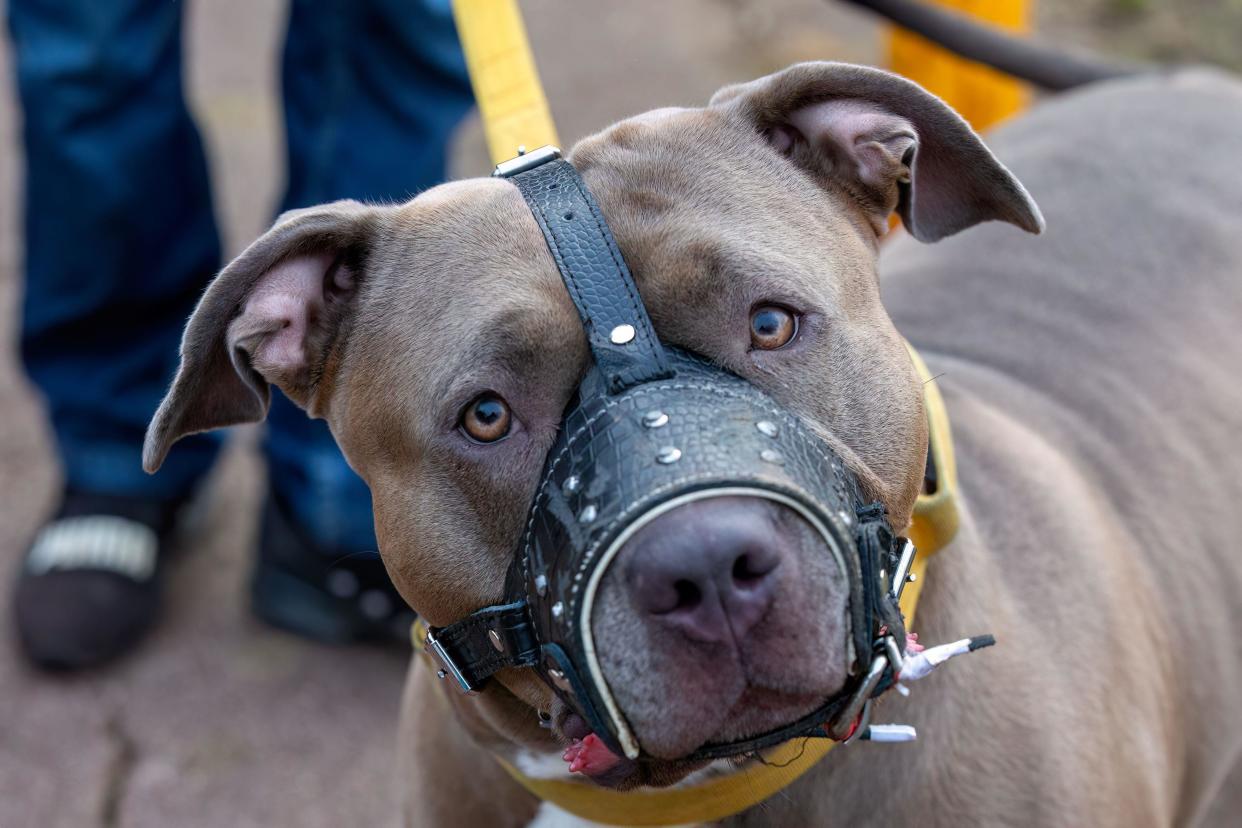Woman who didn't know XL bully was pregnant may have to put down 8 puppies

An animal lover who rescued a pregnant XL Bully may be forced to keep eight puppies or put them down after she was told they could not be sold or given away due to the recent ban.
The 43-year-old has managed to get special exemption certificates for the now-banned breed.
But she cannot legally sell them or even give them away - and will have to keep them unless she has them put down, which would "break her heart".
It has created a huge practical and financial headache for the woman and her family, who do not wish to be named.
Despite the ban on owning XL Bullies being announced by the government on 31 October, the family rescued Brandy in November as they “just wanted to give her a better life”.
Recommended reading:
Illegal XL bullies may be put down if owners are non-compliant, police head says (PA)
Do not neuter XL bully dogs until they are fully grown, MPs told (PA)
XL bully ban comes into force as police chief urges owners to comply with authorities (Sky News)

But she said that at the time they had “no idea” the dog was pregnant.
The woman, from Canterbury, Kent, said: “When she kept getting fatter despite watching her diet, we took her to a vet, who told us she was pregnant.
“It was a huge shock and we probably wouldn’t have taken her in had we known.”
Seven weeks ago, Brandy gave birth to a litter of 10 pups, of which eight survived.
The owner said: “We helped deliver them all ourselves and they are adorable.
“But now we are at a complete loss about what to do because we could never have them put down.”
She said the pups are growing fast and becoming more boisterous and demanding by the day, adding: “They are little balls of energy and fun and, like their, mum, just very friendly and loveable.

“We believe the problem around XL Bullies is not the dogs, but their owners – they are the ones who should be vetted to see if they are suitably responsible.”
She said the birth of the pups has also been quite the upheaval for the family’s “lovely” seven-year-old Labrador, called Honey, who has gone from being the only pet to one of 10 dogs in the house.
The owner says she has no worries about the Bullies being branded dangerous dogs, adding: “Brandy is even nicer [than Honey] and we trust her completely with our children.”
But she said the litter is presenting a financial "headache" for the family because of the growing cost of keeping them, including feeding and vet bills.
The owner said: “It is a real worry, but I am hoping because of our special circumstances, the Department for the Environment, Food and Rural Affairs [Defra], which administers the exemption scheme, will give us some dispensation."
Wednesday was the last chance to register an XL Bully for an exemption allowing people to keep their pets.
The family had to find almost £900 at short notice to pay for the certificates for the mum and pups.
Now they are hoping dog lovers will help them with the cost and ongoing bills through a GoFundMe page.
What are the new XL Bully rules?
Defra says the decision to ban XL Bully dogs was made following concerns about attacks by dangerous dogs, with 23 people killed and the breed involved in many of the incidents.
New restrictions covering the breed came into force on December 31, making it a legal requirement for owners to have an exemption certificate for their dogs, or have them put down.
Now, all XL Bullies have to be kept on a lead and muzzled when in public. It is also illegal to sell, advertise, gift, exchange, abandon or let the dogs stray.
Those owning an unregistered dog are now committing a criminal offence and face a criminal record and an unlimited fine.
Owners who do not want to keep their dogs should take them to a vet to have them put down, according to Defra.



